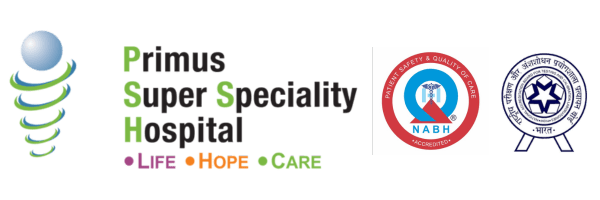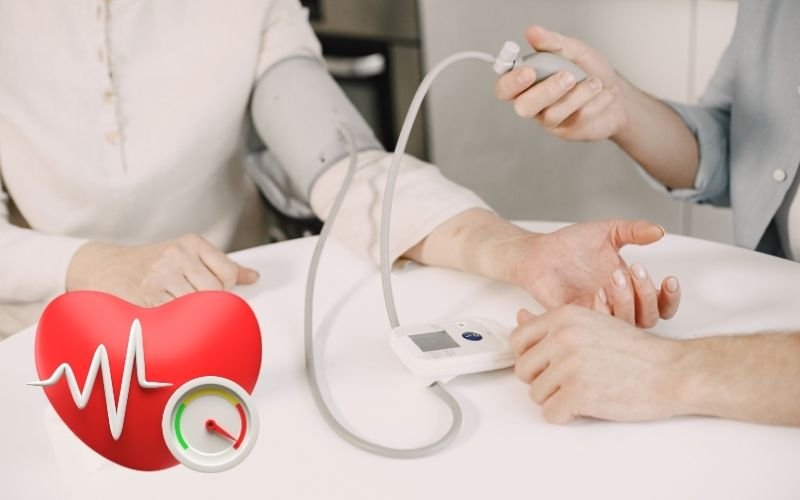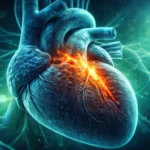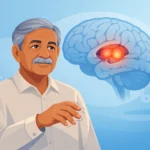In India, one in every four adults suffers from hypertension—yet most don’t even know it. According to the Indian Council of Medical Research (ICMR) and National Health Mission (2023), nearly 30% of Indians above age 18 have high blood pressure, and the condition is poorly controlled in over 75% of diagnosed patients. What’s more alarming is that hypertension is now being diagnosed in people as young as 25, especially in metro cities like Delhi, Mumbai, Bengaluru, and Hyderabad, due to super busy lifestyle, stress, and unhealthy food habits.
A lot of patients often ask cardiologists & heart specialists in Delhi: “Can hypertension be reversed?” Is it really possible to bring your blood pressure back to normal?
In this blog, we break down:
- What hypertension actually means (in simple English & Hindi)
- Why it happens and how it affects your body
- Real facts on whether reversal is possible or just a myth
- Medical treatment and lifestyle changes that have worked as per top cardiologist in Delhi or at a heart hospital like Primus Super Specialty Hospital
What Is Hypertension? (Definition + Hindi Meaning + Symptoms)
Hypertension, also known as high blood pressure, is a chronic medical condition in which the force of the blood against the artery walls is consistently too high. It’s often referred to as a “silent killer” because it usually has no noticeable symptoms but lead to serious complications such as stroke, heart attack, kidney failure, and vision problems over time.
Hypertension Definition
According to the American Heart Association, hypertension is defined as having:
- Systolic pressure ≥ 130 mmHg, or
- Diastolic pressure ≥ 80 mmHg, or
- Both, on repeated readings taken under proper conditions.
There are two main categories of hypertension:
- Primary (Essential) Hypertension – no identifiable cause; develops gradually due to genetics, poor lifestyle, or aging.
- Secondary Hypertension – caused by another condition like kidney disease, adrenal tumors, or certain medications.
Hypertension Meaning in Hindi:
Hypertension means उच्च रक्तचाप — यानी धमनियों में रक्त का दबाव सामान्य से ज़्यादा हो।
Why Is Hypertension Dangerous?
Even without symptoms, high blood pressure can silently damage your blood vessels and organs. If left uncontrolled, it increases your risk for:
What are the Common Symptoms of Hypertension?
Although hypertension usually has no warning signs, but people may experience:
- Morning headaches
- Nosebleeds
- irrIrregular heartbeat
- Vision changes
- Buzzing in ears
- Fatigue or confusion
- Chest pain or difficulty breathing (in serious cases)
However, these symptoms often appear only after some damage has occurred. That’s why regular blood pressure checks are necessary.
What Causes Hypertension?
In India the rise in high blood pressure cases is often tied to a mix of lifestyle factors, urban stress, and underlying health conditions.
Types of Hypertension Causes:
1. Primary (Essential) Hypertension
This is the most common type—nearly 90–95% of cases fall into this category. It doesn’t have a single, identifiable cause, but it develops gradually over time due to:
- Sedentary lifestyle
- High-sodium diet (especially packaged foods, pickles, and restaurant meals)
- Obesity or increased BMI
- Chronic stress
- Excessive alcohol or smoking
- Genetics or family history of hypertension
Did You Know?
Indians consume double the recommended salt intake per day (10–11 gm/day vs WHO’s 5 gm/day), which is a key trigger for hypertension. Fact cited from Zee News Report
B. Secondary Hypertension
This type is caused by other medical condition and accounts for about 5–10% of cases. It is usually more severe and sudden in onset. Possible causes include:
- Chronic kidney disease
- Thyroid or adrenal gland disorders
- Sleep apnea
- Certain medications (like NSAIDs, birth control pills, decongestants)
- Hormonal imbalances
- Preeclampsia during pregnancy
In young adults (<35), if BP rises suddenly, Cardiology specialists screen for secondary causes.
India-Specific Risk Amplifiers
- Urban work culture: Long working hours, lack of physical activity, erratic eating patterns
- Mental health: Anxiety, overthinking, and depression contribute to rising BP
- Air pollution: Studies have linked Delhi’s poor air quality with increased cardiovascular stress and hypertension risk
- Access delay: Many people don’t check BP unless symptoms appear, leading to late detection
Can These Causes Be Reversed?
- Lifestyle causes: Yes — these can be significantly modified or reversed with the right care plan.
- Medical causes: Need targeted treatment, but BP can still be brought under control with proper diagnosis and therapy.
What Are the Symptoms of Hypertension?
Hypertension usually shows no obvious symptoms until major damage has already occurred. In fact, most people in India discover they have high blood pressure only when:
- They undergo a routine health check-up
- They develop a complication like a stroke, heart attack, or kidney issue
- They experience persistent headaches, dizziness, or vision problems
Common Symptoms
While many remain asymptomatic, some individuals—especially those with very high blood pressure or hypertensive crisis—may notice:
- Early morning headaches
- Dizziness or lightheadedness
- Blurred or double vision
- Nosebleeds (recurrent and unexplained)
- Shortness of breath
- Fatigue or confusion
- Chest pain or palpitations
- Buzzing in the ears (tinnitus)
When to Seek Immediate Cardiology Treatment in Delhi
If your blood pressure reading is 180/120 mmHg or higher, and you’re experiencing:
- Chest pain
- Shortness of breath
- Sudden vision loss
- Difficulty speaking
- Paralysis on one side
You may be in a hypertensive emergency, requiring urgent care at a heart hospital in Delhi such as Primus Super Specialty Hospital or other NABH-accredited cardiology centers.
Can Hypertension Be Reversed?
This is the most frequently asked—and most misunderstood—question by cardiology speciaists across India:
“Can I reverse hypertension permanently, or do I have to take medicines forever?”
Yes, Early-Stage Hypertension Can Be Reversed Naturally If you’re in the prehypertension or early stage 1 hypertension range (typically <140/90 mmHg), research shows that blood pressure can return to normal without long medicines.
Real Evidence:
A 2020 study published in the Journal of Hypertension showed that lifestyle interventions like: Weight loss, Sodium reduction, Regular physical activity, Stress control could lower systolic BP by 10–15 mmHg in 4–6 weeks. In some patients, this brought them back to normal range without medicines.
But Moderate to Severe Hypertension Needs cardiological treatment and care
For patients with BP ≥ 140/90 mmHg, or with organ damage (e.g., kidney strain, LVH, eye changes), complete reversal is unlikely without medications.
With medicines, BP can still be brought to controlled levels.
Reversal ≠ Cure
Think of hypertension like diabetes:
Even if controlled, the underlying tendency remains. If you stop caring for your diet, sleep, stress, or weight—the BP will creep back up.
Stages of Hypertension (BP Classification Chart)
Blood pressure is measured in millimeters of mercury (mmHg) and includes two numbers:
- Systolic (top number) – pressure when the heart beats
- Diastolic (bottom number) – pressure when the heart relaxes
| Stage | Systolic (mmHg) | Diastolic (mmHg) | Hindi Meaning |
| Normal | Less than 120 | And less than 80 | सामान्य रक्तचाप |
| Elevated | 120–129 | And less than 80 | थोड़ा बढ़ा हुआ रक्तचाप |
| Stage 1 Hypertension | 130–139 | Or 80–89 | उच्च रक्तचाप – स्टेज 1 |
| Stage 2 Hypertension | 140 or higher | Or 90 or higher | उच्च रक्तचाप – स्टेज 2 |
| Hypertensive Crisis 🚨 | Over 180 | And/or over 120 | अत्यंत खतरनाक स्थिति |
In India, many patients are diagnosed only after crossing Stage 2, due to lack of routine checkups. Regular BP screening can help catch it early when reversal is still achievable.
Natural Remedies to Lower Blood Pressure
Here are the most evidence-based remedies, adapted for the Indian lifestyle:
1. Switch to a DASH or Low-Salt Diet
DASH = Dietary Approaches to Stop Hypertension – a globally recommended eating plan that:
- Lowers BP by 8–14 mmHg
- Works within 2–4 weeks
What to eat (Indian version):
- More: daliya, oats, sprouts, fruits, vegetables, low-fat curd, rajma, chana, spinach
- Less: pickles, papads, salted namkeen, packaged snacks, gravies with extra salt
💡 WHO recommends <5g salt/day. Most Indians consume 10–11g/day. Reducing salt is the simplest and fastest BP fix.
30 Minutes of Moderate Exercise Daily
Physical activity reduces systolic BP by 5–8 mmHg.
Indian-friendly routines:
- Morning walks in parks
- Surya namaskar and yoga
- Dancing, cycling, light jogging
- Home aerobics or resistance bands
Even 10-minute walking breaks after meals can improve BP sensitivity.
Manage Stress Through Meditation or Prayer
Stress causes your heart rate and BP to spike. Over time, it keeps you in a hypertensive state.
Ways to reduce stress:
- Guided meditation
- Shambhavi Kriya / Sudarshan Kriya
- Regular spiritual practices (mantra chanting, temple visits)
- Deep breathing (Anulom Vilom, 4–7–8 technique)
Lose 5–10% of Body Weight
Even 5 kg weight loss can reduce BP by 4–5 mmHg. Belly fat is linked with higher BP in Indian men and women.
Tips:
- Eat 3 small balanced meals, avoid late-night dinners
- Replace fried snacks with fruits.
Fix Sleep & Treat Sleep Apnea
Bad sleep = High BP. Especially in obese men, snoring with gasping is a red flag.
Sleep apnea may require:
- Weight loss
- Sleep studies at a heart hospital
- CPAP machines in moderate–severe cases
Quit Smoking & Reduce Alcohol
- Every cigarette raises BP for 20 minutes
- Alcohol >2 drinks/day worsens control
Even reducing frequency can improve BP by 5–7 mmHg in 1 month.
Track BP at Home + Doctor Follow-Ups
- Use digital BP monitors.
- Check at same time daily (morning preferred)
- Keep a BP diary or use apps
Pair this with regular visits to a cardiologist in Delhi or Primus Super Specialty Hospital for long-term success.
In a lifestyle-based reversal program published in the Journal of Lifestyle Medicine (India, 2021):
- 67% of patients with early hypertension normalized BP without meds in 6 months
- Others reduced dosage by 50% under medical supervision
Medical Treatment for Hypertension in Delhi
If the condition has progressed to Stage 2 or if there are existing complications like kidney damage, heart strain, or diabetes.
In such cases, medications become necessary
Types of Hypertension Medicines
| Class | How It Works | Examples |
| Diuretics | Helps kidneys eliminate excess salt and water | Hydrochlorothiazide, Chlorthalidone |
| ACE Inhibitors | Relaxes blood vessels by blocking angiotensin enzyme | Enalapril, Ramipril |
| ARBs (Sartans) | Similar to ACE inhibitors, but fewer side effects | Telmisartan, Losartan |
| Calcium Channel Blockers | Relaxes vessel walls and reduces heart workload | Amlodipine, Verapamil |
| Beta Blockers | Slows heart rate and lowers blood pressure | Atenolol, Metoprolol |
| Combination Pills | Two-in-one drugs for better compliance | Telmisartan + Amlodipine |
Always take these under doctor’s supervision. Never self-start, stop, or change dosage abruptly.
When Should You Start Medication?
You may need medications if:
- Your BP is consistently ≥140/90 mmHg
- Lifestyle changes don’t bring BP down within 3 months
- You have other risks like diabetes, heart disease, kidney issues
- You’ve had a stroke, mini-stroke, or heart attack in the past
The goal of medication isn’t just to lower numbers—it’s to prevent complications like heart failure, stroke, and blindness.
What Results Can You Expect?
- Even a 10 mmHg reduction in systolic BP reduces stroke risk by 30–40% and heart disease by 20–25%
- Most patients see results within 2–4 weeks of consistent medication
- Side effects are usually mild and can be managed with dose adjustments
Reversal After Medications? Yes—Sometimes
If you combine medication with aggressive lifestyle changes, doctors may gradually:
- Taper your medicine
- Or reduce dosage
- In some cases, stop it entirely (especially for Stage 1)
This decision should always be taken by your cardiologist, based on consistent readings over 3–6 months.
Always consult top heart specialists for hypertension relaed issues.













